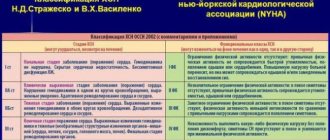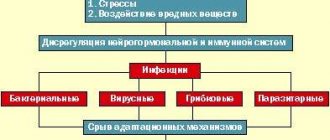Home — Social networks — Combating exhaustion and chronic fatigue: an effective technique from an expert
Has this ever happened to you? Come after a hard day at work, full of difficult decisions, and the other half is planning a vacation. And suddenly you find yourself saying: “Do whatever you want - I’m fine with it.”
Or this: you wake up later than usual, you’re late, and tell yourself that you’ll do your exercises in the evening. Only in the evening I have no energy for anything.
And also: you return home exhausted - there are three hours left of a beautiful summer evening. You can take a walk, meet friends, cook a delicious dinner, or finish reading a book. But instead, you grab a bag of salty cookies, turn on the TV, collapse on the sofa and mindlessly watch “The Shawshank Redemption” for the thirty-fifth time.
What's happening? This is chronic fatigue. Marshall Goldsmith, author of the book Triggers, is sure that it is not that we are weak in character, but that we are exhausted. This article contains a recipe that will help you not get so tired and maintain vital energy.
Causes
Cachexia is not an independent disease. This is always a complication of any disease or pathological condition. Doctors distinguish three groups of causes of exhaustion of the body: social, diseases of internal organs, disorders of the nervous and mental state.
Social: dietary restrictions due to wars, crop loss, isolation.
Diseases of internal organs that cause cachexia (most common):
- Cancer and other oncological diseases in the final stages.
- Diabetes mellitus, decompensated and not adequately treated.
- Rheumatoid arthritis and other autoimmune diseases.
- Heart failure.
- Diseases of the gastrointestinal tract and kidneys.
- Severe infections.
Mental disorders and behavioral disorders leading to pathological exhaustion:
- Anorexia, bulimia, dysphagia.
- Abuse of alcohol, drugs, psychostimulants.
- Schizophrenia and schizophrenia spectrum disorders.
- Psychosis.
- Depression.
- Anxiety disorders, neuroses, personality disorders.
- Dementia.
Diagnostics
To clarify the cause of exhaustion, a consultation with a therapist is usually required, who is responsible for the initial examination and excludes the most typical factors that cause weight loss. A comprehensive study of the condition of internal organs and assessment of neurological and mental reactions is necessary. The following methods have the greatest diagnostic value:
- Sonography
. First, an ultrasound of the abdominal cavity is performed, during which signs of inflammatory and degenerative processes, the presence of stenoses and space-occupying formations are revealed. The motility of the stomach and intestines is assessed. An ultrasound of the thyroid gland and adrenal glands is performed; in women, the mammary glands are examined to exclude cancer. - X-ray method
. In case of exhaustion, the condition of the gastrointestinal tract must be checked, for which a series of X-rays with contrast are performed. The method is effective for stenosis and tumors of the esophagus and allows one to evaluate the rate of chyme movement. To exclude damage to the pituitary gland, a targeted radiograph of the sella turcica is recommended. - Endoscopic studies
. Endoscopy helps to study in detail neoplasms and strictures in the upper part of the digestive canal, which often cause depletion of the body. During the procedure, a methylene blue test is performed to detect metaplasia, as well as an endoscopic biopsy of suspicious formations to exclude an oncological cause of cachexia. - Blood tests
. The degree of depletion of the body is judged by the level of decrease in protein levels in a biochemical blood test. Determining the concentration of nitrogen metabolism products and basic electrolytes makes it possible to assess the severity of damage to internal organs. The level of tropic hormones of the pituitary gland, liberins and statins of the hypothalamus is measured. - Neurological examination
. The examination is indicated if there are signs of nervous and physical exhaustion. They examine the level of consciousness and cognitive capabilities, check muscle tone and coordination of movements. To exclude severe lesions that are accompanied by refusal to eat, CT and MRI of the brain are prescribed. The functional activity of brain cells is recorded on an EEG.
If the symptoms of exhaustion of the body are accompanied by “minor signs” of oncological pathology (fatigue, lethargy, general malaise, anemia), it is necessary to examine the blood for tumor markers, carry out additional instrumental procedures - CT scan of the abdominal cavity and chest, scintigraphy of the body. All patients undergo a screening test for HIV infection. When exhaustion is combined with a dysmorphomanic state, consultation with a psychiatrist is required to exclude a neurotic or psychotic cause of the disorder.
Symptoms
The main symptom of cachexia is progressive weight loss. Other symptoms: weakness, dehydration, swelling, lack of subcutaneous fat, dystrophic changes in hair and nails, constipation, cessation of menstruation, anemia (anemia), decreased mobility (up to complete immobility), loss of consciousness.
The development of cachexia can be indicated by a decrease in body mass index (BMI) of less than 18.5 units. This index is easily calculated using the formula BMI = weight (kg) / height ² (m). A normal BMI is from 18.5 to 25.
Fatigue of decisions, or Why “the head doesn’t think well”
Exhaustion attacks more than just our ability to self-control. It extends to many forms of self-regulation. Most of all, it influences decision making. The more decisions we have to make—from buying a new car to scheduling conference attendees—the more difficult it is for us to continue to act in the same spirit.
Researchers call it “decision fatigue,” a condition that causes us to do one of two things:
- make frivolous choices;
- To do nothing.
What to choose? The question is complex
Due to decision fatigue on Wednesday, we return the ridiculous purchases we made on Tuesday, because the next day, when the fatigue passes, our heads are clearer. This is why we put off making decisions when we are too tired to do it now.
But exhaustion affects more than just decisions. Interpersonal relationships and the ability to change are under attack. If purchases, decisions, and resistance to temptation are depleted, then complex behaviors are also subject to depletion (scientists confirm this).
Treatment
Therapy for cachexia consists of eliminating the cause - treating the underlying disease. And in restoring impaired metabolism. For moderate and severe severity, treatment is carried out in a specialized hospital. Treatment of severe cachexia is carried out in intensive care settings.
Treatment of cachexia at the ROSA Clinic:
- We treat patients with pathological weight loss due to eating disorders, nervous and mental disorders.
- We have our own hospital with the possibility of examination and intensive treatment.
- Unique rehabilitation programs to restore and maintain normal eating behavior and weight.
- We work around the clock.
- We provide medical and psychological assistance . Special individually selected meals.
- For the period of treatment , if necessary, a sick leave certificate is issued.
The phenomenon of exhaustion
In the 1990s, social psychologist Roy Baumeister coined the term “ego depletion.” He argued that we have limited cognitive resources, which he called "ego power." During the day, they spend time on self-regulation: resisting temptations, working, suppressing desires, controlling thoughts and beliefs, following established rules. According to Baumeister, this depletes the ego.
Scientists have studied exhaustion in different situations. They first examined self-control. Most often they seduced people with chocolate. It turned out that trying to avoid the offer of a treat weakened people's ability to resist other temptations in the future.
Our self-control, like the amount of fuel in a gas tank, has its limit and runs out with continuous use. By the end of the day we are completely exhausted and can do ridiculous things.
Nervous exhaustion – a modern disease?
Neurasthenia - nervous exhaustion
– in my opinion, the most common disease today.
And the least diagnosed. It disguises itself as depression, bad character, laziness, as well as a whole bunch of somatic diseases. So it turns out that a person is being treated for depression, headaches, vegetative-vascular dystonia, abdominal pain, stomach ulcers, but neurasthenia - the cause of the illness - does not go away. What symptoms can be used to suspect nervous exhaustion?
Signs of neurasthenia
1. Irritability
– a person becomes hot-tempered, starts up at half a turn. Literally everything irritates – even close people, music that you previously liked, your own habits... This irritation flares up immediately and completely covers the person...
2. Impatience
- all ability to wait, to restrain oneself is lost... For example, even knowing that the bus will arrive in 5 minutes, a patient with neurasthenia will not wait for it and will go on foot.
3. Fatigue
– despite the violent manifestations of feelings, a patient with neurasthenia quickly gets tired. In general, fatigue constantly haunts a neurasthenic - in the morning, waking up, he already feels tired.
4. Weakness
– it seems that the arms and legs are like strings, and any movement requires effort.
5. Headache
– they are very common with neurasthenia, occur at the slightest load, and have a compressive nature. Typical sensations are as if a helmet is squeezing the head, or pain behind the eyes and in the temples.
6. Brain fog
– everything is perceived as if through a veil, the head seems to be filled with cotton, intellectual activity becomes unproductive. Often my head is a mess of unpleasant thoughts that interrupt each other...
7. Inability to concentrate - everything distracts
. When trying to engage in intellectual activity, the patient quickly switches to something else: for example, he begins to walk from room to room, look for some objects, then make tea...
It is common for modern office workers to be distracted in such cases by communicating on ASI, Skype, and it is pointless to spend time on social networks (VKontakte, Odnoklassniki)…
8. Increased sensitivity
– even quiet sounds seem unpleasantly loud, the light seems bright... Banal melodrama can cause tears.
9. Sleep disturbance
– it is very difficult to fall asleep – despite the feeling of fatigue and the desire to fall asleep, unpleasant thoughts wander through your head like cockroaches... Such sleepless torment can last for hours... The ensuing sleep is superficial, filled with disturbing, unpleasant dreams. Upon awakening, a person feels completely overwhelmed and tired.
10. Anxiety, fears
– the soul is tormented by various fears, doubts, anxiety at the slightest reason.
11. Low self-esteem
- a person perceives himself as a loser, a nonentity, a weak personality... Often he finds himself with a lot of physical diseases and endlessly undergoes examinations from general practitioners.
12. Decreased sexual desire
– men often experience premature ejaculation, and later impotence.
13. Exacerbation of chronic diseases and the emergence of psychosomatic disorders
– pain in the spine, a feeling of tightness in the chest, heaviness in the heart, tremors, psoriasis, allergies, conjunctivitis, herpes, acne, joint pain, eye pain and visual disturbances, problems with teeth, nails, hair, sudden weight loss...
As you can see, the manifestations of neurasthenia, on the one hand, are serious, on the other hand, they are varied and non-specific, which makes it possible for neurasthenia to masquerade as many diseases. Depending on the degree of neurasthenia, there are three stages.
Course of neurasthenia
The first stage is hypersthenic
.
A person becomes irritable, fussy, and cannot sit in one place for a long time. He is aware of these changes, but cannot help himself. If he loses control of himself, he starts screaming. Often, holding back at work, coming home, he begins to quarrel “for no reason” with loved ones. Difficulty concentrating. Unsuccessful attempts to collect yourself and reduced productivity cause even more irritation. Sleeping is disrupted, the person lies awake in bed for a long time. Pressing headaches, pain in the spine, weakness, and a constant feeling of fatigue appear.
The second stage is “irritable weakness.”
Literally everything is irritating; the patient flares up very quickly, but it doesn’t last long. The ability to concentrate is lost, the patient is practically unable to do work, and is constantly distracted. Fears appear and anxiety increases. The patient becomes convinced that he is incapable of anything, that he is a failure, that his life has been lived in vain. Any sounds, bright lights, or smells are irritating. Moving people and crowds are annoying. Nothing brings pleasure. Sleep is disturbed: it is superficial and does not give rest. Headaches are constant. There may be pain in the heart, shortness of breath, a feeling of lack of air, abdominal pain, diarrhea and constipation, allergies, a feeling of weakness and pain in the muscles, dizziness, sometimes breaking into a sweat...
The third stage is hyposthenic.
At this stage, fussiness and unproductive activity decreases. The patient simply does not want to do anything. Sad mood, complaints of multiple bodily ailments. Superficial sleep. Everything is annoying. Sometimes fear of the future, fear of death, and tearfulness appear. The condition is very similar to depression.
Causes of neurasthenia
The main cause of neurasthenia is overwork. Both physical and emotional fatigue play a role. Moreover, normal physical activity will never cause depression - moreover, it can cure depression. But physical inactivity, long periods of work at the computer, and lack of fresh air can very quickly cause neurasthenia. Particularly harmful is mental activity associated with the need to focus on something for a long time, wait for something, perform homogeneous, boring work that requires attention - the work of an operator, proofreader, programmer... Stress and the presence of irritating factors at work and at home play a very important role , long working hours, lack of sleep. Health is undermined by intoxication, infections, smoking, alcohol, and lack of vitamins. Particularly harmful is the state of anticipation of some kind of misfortune, vigilance - such a mood very often causes neurasthenia.
The insidiousness of neurasthenia
Neurasthenia always begins unnoticed, like simple fatigue or malaise, and it seems that such nonsense is not worth seeing a doctor - it will go away on its own. However, the essence of neurasthenia is such that it takes away the opportunity for self-healing - after all, the only correct method of curing neurasthenia is rest, and it is precisely this that is not possible in the state of a neurasthenic - first of all, sleep is disturbed, restlessness, irritability, and anxiety appear. It turns out that the neurasthenic runs in a vicious circle - lack of rest and relaxation causes neurasthenia, neurasthenia causes the inability to rest and relax. Another danger is self-medication - incorrect prescription of drugs that nourish and stimulate the nervous system only increases irritability, headaches, insomnia and further depletes the nervous system.
Neurasthenia masks
Those suffering from neurasthenia, due to the special variety of complaints, rarely turn to a psychiatrist or psychotherapist, more often going to other specialists, at best to a neurologist, more often to a therapist, or even to a psychologist. It is clear that each specialist sees primarily “their own” complaints, therefore the diagnoses are extremely diverse. A neurologist is the only non-psychiatric specialist who can call neurasthenia neurasthenia and select the correct drug treatment. However, the cause of neurasthenia often lies in psychological problems, and here the neurologist is powerless - he is not trained in psychotherapy. In addition to the diagnosis of neurasthenia, neurologists often diagnose vegetative-vascular dystonia, dyscirculatory disorders of the brain, and vegetative-vascular insufficiency. The therapist can make a “mythical” diagnosis of “Chronic Fatigue Syndrome”, and also find in the patient cardiovascular failure, functional digestive disorders, weak immunity, chronic gastritis, biliary dyskinesia, low hemoglobin, and dysbacteriosis. Recently, it has become fashionable to find parasites and chronic infections such as mononucleosis and herpes.
Yes, indeed, with neurasthenia, immunity and hemoglobin decrease, chronic diseases worsen - but these diseases are not the causes of neurasthenia - remove neurasthenia - and the body will recover by itself!
The ophthalmologist finds a spasm of accommodation (it is very common with neurasthenia, especially in mouse and keyboard workers). The dermatologist finds neurodermatitis, herpes, psoriasis. An orthopedist, massage therapist, or chiropractor find osteochondrosis, usually of the cervical spine, and begin to treat it. A psychologist sees depression, complexes, stress, and tells you about them. Most often, this makes it worse - after all, with neurasthenia there is not enough mental energy to work on oneself! The grandmother finds the evil eye or damage, and “skillfully” rolls it out with an egg. Or it tingles. This makes neurasthenia neither warm nor cold. A psychic and bioenergetics person sees a large hole in the aura. The hole needs to be mended. Neurasthenia remains.
Indeed, with neurasthenia, all organs and systems of the body are affected, and every specialist is right in finding something different - but all these are consequences of primary nervous exhaustion. Therefore, only a psychotherapist (psychiatrist) is able to treat both the cause and consequences of neurasthenia, seeing this disease as a whole.
Treatment of neurasthenia
Mode
. Treatment of neurasthenia begins with the correct choice of daily routine, time for sleep, work, and walks. Working conditions are carefully studied and shortcomings are corrected. The regime involves spending a long time in the fresh air.
Non-drug normalization of sleep
. The patient is taught some techniques to help normalize sleep: relaxation methods, special, individually developed rules to help normalize sleep - a sample of such rules is given below: • Go to bed only when very tired. • Do not do extraneous activities in bed - do not read, do not eat, do not work on a laptop, do not watch TV. • If you can't sleep, don't lie in bed - get up and do something! • Get up at the same time every morning.
Rest
. Special techniques are being developed to help you rest most effectively.
Physical exercise
. One of the causes of neurasthenia is physical inactivity, so physical activity plays an important role in the treatment of neurasthenia. However, it must be strictly dosed - after all, neurasthenia is a disease of exhaustion, and an incorrectly chosen load will worsen the situation. You should start with long walks in the fresh air; swimming gives good results; as your body strengthens, you can move on to more active activities.
Diet
. A properly designed diet for neurasthenia contains foods that increase the body’s adaptive capabilities and help quickly recover. Much attention is paid to the frequency and regularity of food intake.
Water treatments
. For neurasthenia, swimming and warm baths containing decoctions of certain herbs are useful.
Hypnosleep, hypnorest
. Hypnosis promotes deep relaxation and sleep, which is so necessary for neurasthenia. It very effectively relieves overexcitement and nervous tension, relieves fears, anxieties, and obsessive thoughts. One hour of hypnosis can replace many hours of sleep. During hypnosis, it is possible to achieve very deep relaxation, which is usually impossible during natural sleep - after all, in neurasthenics it is superficial. Hypnosis can activate all the forces to cure the disease!
Drug treatment
.
1. Vasodilators - with neurasthenia, cerebral vasospasm occurs, which is what causes headaches. Lack of blood circulation causes oxygen starvation of brain cells, and, as a result, increased exhaustion. Vasodilators relieve headaches and speed up recovery.
2. Substances that improve brain metabolism - these substances, prepared from natural components, help restore brain cells.
3. Nootropics are substances that nourish brain cells. Since many of them have a psychostimulant effect, which in case of neurasthenia increases irritability and anxiety, these substances should be prescribed extremely carefully.
4. Vitamins - they also have a psychostimulating effect, therefore strictly defined vitamins should be prescribed at different stages of treatment
5. Sedatives - they relieve anxiety, tension, deepen sleep, and improve the quality of rest.
6. Antidepressants - prescribed in the presence of depressive symptoms in the structure of neurasthenia.
Psychotherapy – it is usually aimed at solving the situation that led to the disease. If a person constantly falls into a state of neurasthenia, it is necessary to analyze life positions, find errors in behavior and correct them.
In general, with proper treatment, neurasthenia goes away fairly quickly and the person makes a full recovery.
– life begins to make you happy again, and work and family bring pleasure!
Personal website of psychotherapist Sergei Grinvald
Causes of nervous system exhaustion
Each person’s body has its own “emergency resource”: a supply of nutrients, hormones, immune factors, microelements. This untouchable resource can only be used in response to some kind of super strong stimulus (stress). The irritant can be a lack of sleep and rest, mental stress, strong emotion, injury, surgery, etc.
Normally, a stress reaction helps a person to mobilize and overcome the problem. But if the body has already used up its emergency resource, and the stimulus continues to act, nervous exhaustion sets in, and then general exhaustion of the body. And in this case, help is needed. And not stimulation with potent medications (there is nothing to stimulate - there are no resources), but help, calm, systematic treatment. We have accumulated extensive experience in the treatment of nervous and general exhaustion, astheno-neurotic syndrome.
What to do if the nervous system is exhausted
The first thing we will do in case of astheno-neurotic syndrome is to relieve anxiety and establish normal healthy sleep, which brings a feeling of rest (stop further withdrawal of the body’s resources). In a few days you will feel calmer and freer.
Next, everything will be built like this:
- Let’s perform a small examination and find out what exactly “broke” in the body during the period of exhaustion;
- We will provide the necessary help exactly where it is needed;
- Let's give it time to recover;
- We will check the results of treatment (the control examination will be smaller in scope - we only check what was outside the normal range);
- We will gradually stop treatment as we regain good health and resources.
Some people easily cope with stress from birth, others can be taught this. We may offer you a course of correctional work with a clinical psychologist or psychotherapist. The task is to learn to turn off nervous tension when it is useless. This will prevent the development of astheno-neurotic syndrome in the future.
Our main enemy
Work that requires us to be extremely focused causes fatigue. While putting on a good face while working alongside leaders, you should not show weakness. Multitasking is also draining. Trying to convince people to agree to your terms is also exhausting. It is extremely tiring trying to win over people who are prejudiced against you. Containing your worries—any occasion that requires you to control your thoughts and feelings—is difficult, which also leads to exhaustion.
However, unlike physical fatigue, we are not aware of this kind of exhaustion. When we make a serious physical effort, we know in advance that we will feel weak in our muscles and will need to rest. Exhaustion of another kind, like stress, is our invisible enemy.
No instrument will indicate that we are close to a “power outage.”
A measuring device has not yet been invented that will tell us that our emotions are close to zero.
When exhausted, we are more likely to engage in inappropriate behavior, such as excessive talkativeness, divulging personal information, or arrogance. We are also more likely to violate social norms, such as committing fraud. We become impolite. We can be more aggressive; under the influence of such impulses it is difficult for us to restrain ourselves. But we can also become more passive when our intellectual resources diminish.
Symptoms of nervous and general exhaustion of the body
- Feeling tired (up to chronic fatigue syndrome);
- Shallow and/or intermittent sleep, possible severe daytime sleepiness;
- The predominance of anxious thoughts over positive ones, weak perception of pleasant sensations;
- Palpitations, unstable blood pressure;
- Sensitivity to irritants (sharp sounds and lights, unpleasant conversation, strong smell, etc.);
- Headache
- Pain in the neck, back, limbs, muscles (fibromyalgia);
- There may be a slight increase in temperature for no reason;
- Discomfort in the abdomen;
- Exacerbation of tonsillitis, pharyngitis, gastritis and other inflammatory diseases of the mucous membranes









